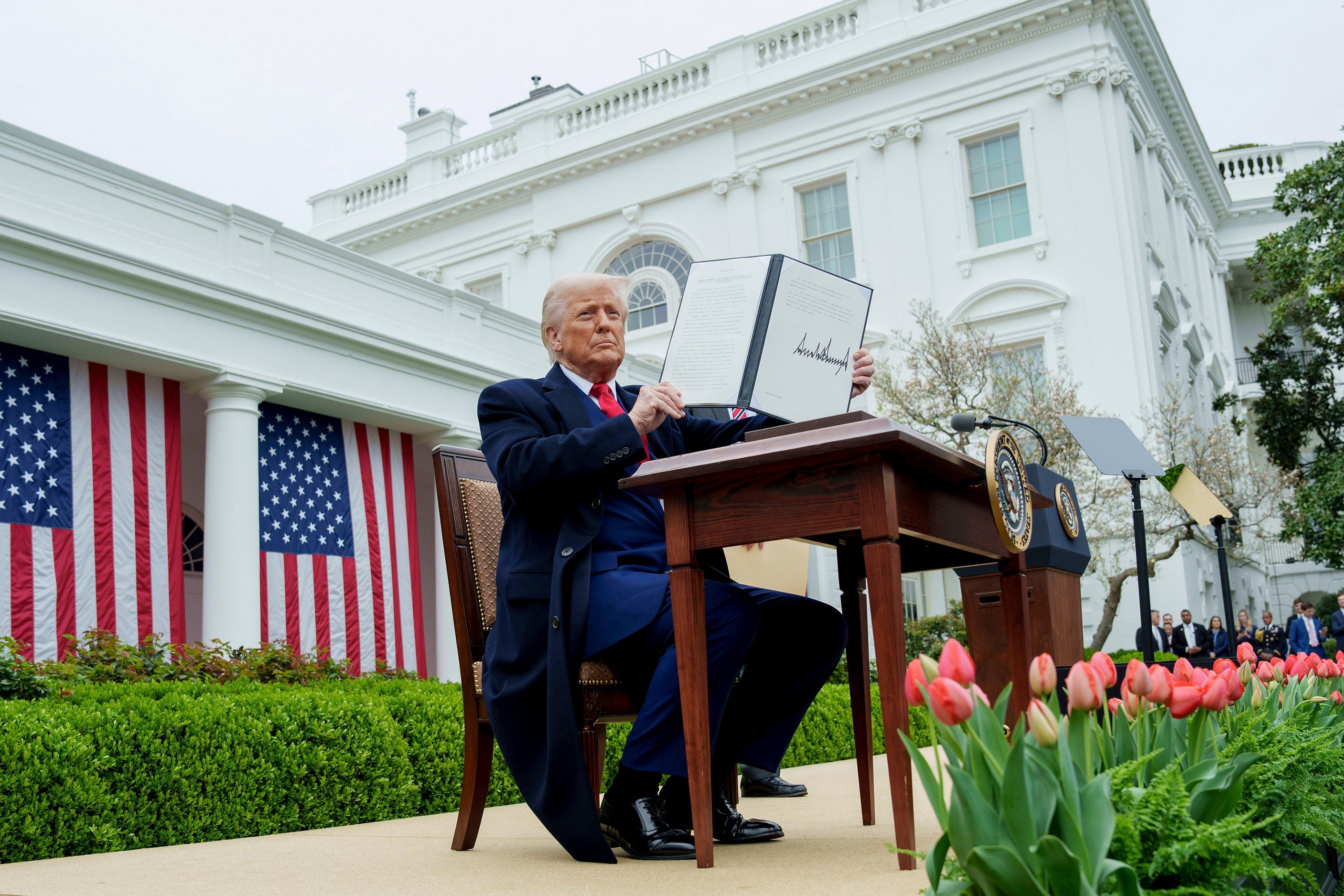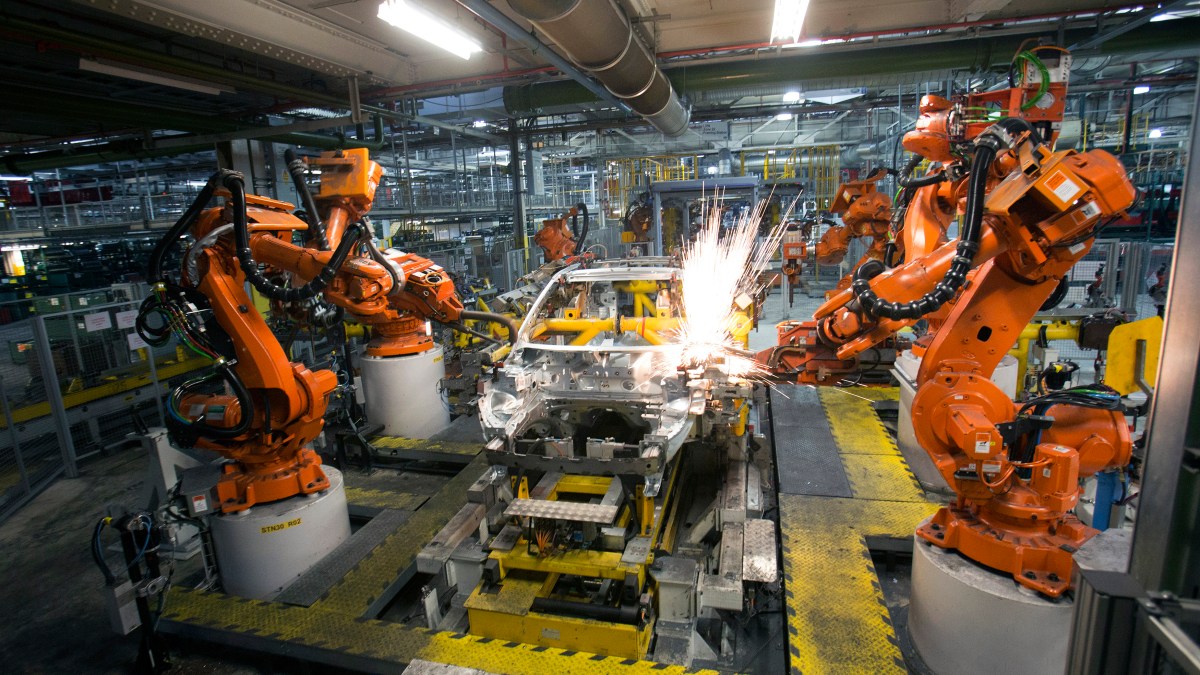Restaurants are warning of “devastating “ job losses following Rachel Reeves’s £25 billion tax raid in her autumn budget. Carmaker Jaguar Land Rover is letting go of 500 managers. And the latest data shows that the UK economy contracted in May.
Yet against this backdrop, the FTSE 100 index has reached record highs, breaching the 9,000 level for the first time in its 40-year history.
President Trump hammered stock markets globally with his “liberation day” tariffs in April, wiping almost 1,000 points from the FTSE 100 in the space of a week to take it to about 7,600.
Investors were concerned that Trump was upending decades of free trade — although he later agreed to delays, earning him the sobriquet “Taco” (“Trump Always Chickens Out”).
Since that plunge in April, the FTSE 100 has been on an upward trajectory, breaking through the 9,000 barrier for the first time on Tuesday — although it ended the week just below that level at 8,992. The index is now up almost 10 per cent this year.

Donald Trump may have wrought havoc in global markets with his “liberation day” tariffs in April, but the FTSE 100 has been on an upward trajectory since
ABE MCNATT/ALAMY
What is in the index?
The FTSE’s 100 constituents have been mocked as “Jurassic Park” because they tend to be in “older” industries such as energy, mining, defence and banking, as well as pharmaceuticals. The index lacks the technology companies, such as Apple and Nvidia, that have boosted the stock market in New York in recent years.
But, of late, these older sectors have been more in demand among investors. Higher interest rates help banks to generate bigger profits, while stocks in the defence sector have been in demand after Trump called for Europe to step up its military spending.
Garvan McCarthy, chief investment officer for EMEA (Europe, the Middle East and Africa) at consulting firm Mercer, said: “The index is packed with globally facing companies in sectors like energy, commodities, defence and financials. These are all areas that global investors have rotated into over the course of this year as we’ve seen interest rates peak and macroeconomic risks have risen.”
So how does this relate to the UK economy?
The nature of the FTSE 100 means that it is not a barometer of the health of the UK economy, although it is a clear illustration of London’s claim to be a global financial sector.
Estimates by the London Stock Exchange Group indicate that as many as 30 of the companies in the index generate less than 90 per cent of their revenues inside Britain.
Peter Oppenheimer, chief global equity strategist at banking giant Goldman Sachs, said: “The FTSE is not really reflective of the domestic UK economy. Most of the revenues of the companies are coming from outside the UK — about 70 per cent or more.”
That often means the FTSE 100 benefits when the pound is weak against the dollar.
At the moment, however, the pound is stronger, which could be a reason for American investors to be attracted to London-listed stocks.
“Sterling has gone up against the dollar, so if you were a US investor buying UK equities and converting back into dollars, the return would be nearly 20 per cent. This is one of the reasons why you’re starting to see more interest in the UK,” said Oppenheimer.
How does the FTSE 100 compare to other markets?
Another reason for the rise in the FTSE 100 is that analysts have been insisting the prices of the companies in the index are cheap compared to other countries. By one measure used to compare the value of stocks, the price-to-earnings ratio, the FTSE 100 trades at 12.5 times — half the value of the companies in the closely watched American S&P 500 index.
Michael Stiasny, head of UK equities at the investment firm M&G, said: “The FTSE as an index is coming from a position where, on a relative basis compared to other markets globally, it’s pretty undervalued.”
So the index had scope to rally this year. But it has not risen as quickly as the Dax in Germany, which is up more than 20 per cent this year, boosted by the German government’s pledge to borrow more to boost spending on areas such as defence.
The FTSE has outperformed the S&P 500 index, which is up by about 7 per cent so far this year. Some analysts suggest investors are becoming more cautious about America as a result of Trump’s economic policies.
What is happening in the UK economy?
Employment prospects are currently the focus for many economists, especially after Bank of England governor Andrew Bailey told The Times last week that there could be bigger cuts to interest rates if the jobs market continued to slow.
In theory, a weaker market should also keep a lid on inflation, which, at 3.6 per cent, is higher than the Bank’s 2 per cent target, as people will have less money to spend.
Allan Monks, an economist at JP Morgan bank, said: “Vacancies are falling sharply and the unemployment rate — which stepped up to 4.7 per cent in May — is rising more quickly than the Bank of England expected.”
In theory, lower interest rates can also help boost share prices, as investors are forced to move their money out of savings accounts into the stock market to achieve higher returns. So the FTSE’s run could have further to go.
